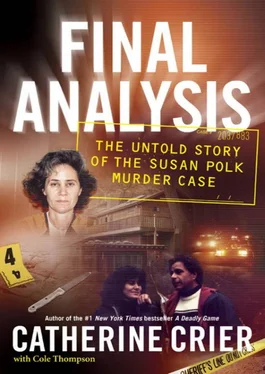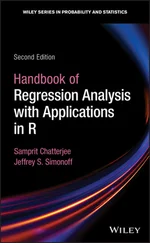On Tuesday, because of scheduling conflicts, the remainder of Eli’s testimony had to be postponed, and instead, the jury heard testimony from the psychiatrist who examined Susan after her 2001 suicide attempt at Yosemite National Park. Dr. Alan Peters told jurors that he assessed Susan after she was transported by ambulance to Columbia General Hospital in Sonora on January 20 and transferred to the psychiatric unit where he was on duty. She had overdosed on aspirin, Vicodin, and Scotch, he said.
At the time, Dr. Peters said he diagnosed Susan with “post-traumatic stress disorder.” He believed her state of mind was a result of her failing marriage to Felix and Eli’s punch. Referring to his case notes, Dr. Peters related that during his one-hour examination, Susan was articulate, cooperative, and aware of what was real and what was fantasy.
“Your manner was quite proper and composed, there was no delusional thinking,” he said in response to her questions. “You were overwhelmed and increasingly despairing over how you were going to manage.”
Referring to Susan’s description of the “power struggle” she was facing with her husband, Dr. Peters said that she was “constantly on the losing end. You were isolated off within your family as being the quote-unquote ‘crazy one,’” the psychiatrist told Susan in court.
On cross-examination, the witness admitted that Susan was also recalling sexual and physical abuse, supposedly inflicted by her parents, and that Felix Polk expressed concern for his wife and was anxious to take her home. He also testified to a notation in Susan’s record that Felix had requested Susan be committed to the psychiatric hospital for observation. Dr. Peters said that Felix had made no such request to him.
In addition, Sequeira pointed out that it was Felix who called the ambulance that day, arguably saving Susan’s life.
“One could say that, yes,” Dr. Peters replied.
On Tuesday, after calling Eli’s former rugby coach to testify about her son’s character, Susan then called David Townsend, a forensic computer expert, originally hired by Dan Horowitz, to discuss the tests he performed on Susan’s home computer. Townsend, a former police officer, claimed that someone had twice accessed the files containing Susan’s two-hundred-page diary before officers had obtained a search warrant. This contradicted Detective Mike Costa, who, under oath, denied reading the diary, but it remained unclear who might have done so. While this accusation suggested a violation of police protocol, his tests showed that, though the diary was accessed, it did not appear to have been altered. Townsend’s examination also revealed that law enforcement did not document the required chain of custody for the computer.
The court adjourned for lunch but when the session resumed, it was Eli who returned to the stand. He testified that his father was a violent and controlling man who regularly tried to convince his children that their mother was crazy. Wearing a pained looked, he sat hunched in the witness box, listening to an audiotape of himself reacting to news of his father’s death the day after Felix’s body was found.
Eli’s sad demeanor on the stand did not match his commanding figure. Broad shouldered, at just over six feet tall, nevertheless, Eli appeared vulnerable and in need of emotional support. Unlike his two brothers who seemed defiant and expressed a loathing for their mother, it was clear that Eli had a special connection to Susan. Eli’s subdued appearance also stood in stark contrast to his lengthy juvenile rap sheet that included various assaults and encounters with the police.
“Did you love your dad?” Susan asked her son.
“Yeah, he was just a damaged person…. Looking back, he was a really unstable person,” Eli described his father.
For the remainder of the afternoon, Eli confirmed Susan’s claims regarding Felix’s tyrannical behavior, his purported links to the Jewish mafia, and accusations that his brothers had turned on Susan out of greed.
“He tried to get you on medication,” Eli said. “He talked to the kids about how to handle you. His whole thing was ‘you were crazy’ and ‘you imagined things.’”
Eli insisted his mother had every reason to believe that Felix was linked to the Mossad. “We’d be at dinner and he’d talk about his patients,” Eli recalled. “He said he had a patient in the FBI who was an assassin. He said he saw numerous people involved in the FBI and the CIA.”
Eli also contended that two of Felix’s friends regularly spoke of their ties to Israeli Intelligence and the Mossad.
On Wednesday, Eli’s testimony was again interrupted when a surprise witness was wheeled into the courtroom and announced her need to speak out on Susan’s behalf.
Seemingly out of breath, seventy-seven-year-old Elizabeth Bradley’s appearance momentarily created what could only be described as a “Perry Mason moment.”
“Oh my God!” Susan gasped. “Eli, do you remember who this is?”
Eli did not recall the Polks’ former neighbor from Berkeley, but he sat quietly as Mrs. Bradley addressed the court from her wheelchair.
“I didn’t know when I should come,” she said, speaking to Susan at the podium. “But I arranged for a taxi and my son to get off from work, and my cardiologist arranged for some extra medications in case I had a heart attack or stroke, so I came without notice and here I am.”
Her shoulders wrapped in a shawl, Bradley guided her motorized wheelchair to the front of the courtroom. Her son, Edwin, trailed behind and held a microphone to her lips when she stopped in front of the clerk’s desk and addressed the court. “I’m obliged to come to the aid of a very special person.”
Initially, Sequeira objected to the surprise witness, saying that her name was not on the required list. In response, Susan told the court that she was unaware that Mrs. Bradley was planning to attend the trial. Her former Elmwood Avenue neighbor had written to her in jail, upset over the way she was being portrayed in the news. Producing Bradley’s letter for the prosecutor, Susan said that they had spoken about her coming to court but nothing had ever been firmed up.
“Elizabeth, did we discuss your testimony at all?” Susan asked the elderly woman, whose frail body shook intermittently from palsy.
“No.”
“Today is a very special day, isn’t it?” Susan said, addressing her neighbor.
“Yes, April 26 is my seventy-seventh birthday. And I have to apologize for my difficulty speaking, because I’m in the middle of some major oral surgery. If you can’t understand me, let me know and I will try harder.”
During thirty minutes of testimony, Bradley explained that she had been moved to act because the news media “was demonizing Susan in such a way, I was shocked. There was no comparison to the Susan I knew.
“She was an outstanding citizen of the neighborhood and we loved her,” Bradley tearfully recalled.
Elizabeth Bradley said that she was a single mother raising two children when Susan and Felix moved into the neighborhood with their three sons nearly twenty years ago. “We were neighbors and friends. I babysat when Susan had to go shopping. I was like an aunt to the children. They were so adorable. I loved being around them and Susan.”
“You’re being too kind, Elizabeth,” Susan said in between sobs.
“I saw no meanness in the children, except that Eli took a terrible amount of sibling abuse from his older brother, Adam. And his older brother was the apple of his father’s eye.”
Bradley charged that it was not Susan, but Felix, who was emotionally agitated. She recalled one day that she was visiting the Polk house when Felix unleashed his rage on one of his sons. She was not sure which boy it was but said the beating sounded brutal.
Читать дальше











